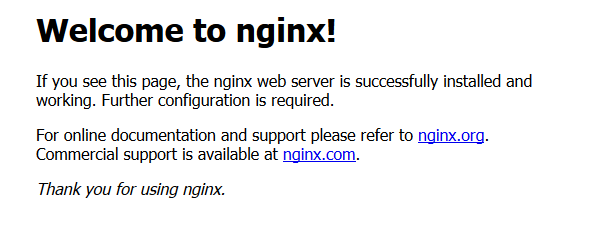
k3OS is a lightweight operating system, optimally designed to run Kubernetes (k8s) or more specifically Lightweight Kubernetes (k3s) clusters. The main aim of k3OS is to minimize operating system maintenance while running a Kubernetes (k3s) cluster. k3OS and k3s both are developed by Rancher Labs.
k3OS Kernel is forked from Ubuntu, while many of the user-space binaries comes from Alpine Linux, whereas some code is derived from LinuxKit. Additionally, the k3OS operating system is designed to be managed by kubectl once a cluster is bootstrapped. All aspects of the operating system of nodes will be managed by Kubernetes.
In this article, we will install a Lightweight Kubernetes (k3s) cluster with k3OS operating system.
A very good and comprehensive reading reference for k3OS is its documentation. But you should also read Kubernetes in Action by Manning Publications to have a good understanding of Kubernetes technology and its usage.
This Article Provides:
System Specification:
We have provisioned two virtual machines with following specifications:
| Role: | Server | Agent |
| CPU: | 3.4 Ghz (2 cores) | 3.4 Ghz (2 cores) |
| Memory: | 2 GB | 2 GB |
| Storage: | 60 GB | 60 GB |
Installing k3OS Operating System:
We have downloaded iso of k3OS operating system from GitHub.
Attach the downloaded file k3os-amd64.iso in our virtual machine and start VM.
Select Run k3OS LiveCD or Installation and press <ENTER>.
The system then boot-up and reach at the login prompt. Login as rancher user without password.
After successful login, you may acquire a Bash shell. Then, use following command to set a password for rancher user. It will enable us to login to this machine using a ssh client.
Connect with this machine using ssh as rancher user.
login as: rancher
rancher@192.168.116.161's password:
Welcome to k3OS!
Refer to https://github.com/rancher/k3os for README and issues
By default mode of k3OS is to run a single node cluster. Use "kubectl"
to access it. The node token in /var/lib/rancher/k3s/server/node-token
can be used to join agents to this server.
You can configure this system or install to disk using "sudo os-config"
k3os-24483 [~]$
Check the version of the k3OS operating system.
k3os-24483 [~]$ cat /etc/os-release
NAME="k3OS"
VERSION="k3OS v0.2.0-rc4"
ID=k3os
ID_LIKE=alpine
PRETTY_NAME="k3OS v0.2.0-rc4"
VERSION_ID="v0.2.0-rc4"
HOME_URL="https://k3os.io/"
SUPPORT_URL="https://k3os.io/"
BUG_REPORT_URL="https://github.com/rancher/k3os/issues"
ISO_URL="https://github.com/rancher/k3os/releases/download/v0.2.0-rc4/k3os.iso"
Check Kernel version.
k3os-29512 [~]$ uname -a
Linux k3os-29512 4.15.0-47-generic #50 SMP Tue Apr 23 19:17:07 UTC 2019 x86_64 GNU/Linux
Repeat above steps on both machines.
Installing & Configuring Kubernetes Server Node with k3OS:
Start k3OS configurations using following command.
k3os-24483 [~]$ sudo os-config
Running k3OS configuration
Choose operation
1. Install to disk
2. Configure server or agent
Select Number []: 1
Choose the required operation and press <ENTER>.
Choose installation partition table type
1. gpt
2. msdos
Select Number [1]: 2
Choose installation partition table type according to your Hardware. If your system is UEFI based, then you must select gpt partition table type. If your system is BIOS based, then you must select msdos table partition type.
Press <ENTER>.
Config system with cloud-init file? [y/N]: N
k3OS operating system can be configured using a cloud-init file for automatic and fast provisioning of cloud instances. cloud-init is a separate topic and beyond the scope of this article, therefore, we are not using it now for the sake of simplicity. Once, you made your hand dirty with k3OS, then you can use cloud-init file.
Authorize GitHub users to SSH? [y/N]: N
If you are required to allow users to access GitHub using ssh from this machine then choose 'y' otherwise select 'N'. If you choose 'y' then you have to provide a comma seperated list of authorized GitHub users.
Please enter password for [rancher]:
Set a password for rancher user.
Please enter password for [rancher]: ***
Confirm password for [rancher]: ***
chpasswd: password for 'rancher' changed
Run as server or agent?
1. server
2. agent
Select Number [1]: 1
Choose the role of this node and press <ENTER>.
Token or cluster secret (optional): karachi
Provide a cluster secret and Press <ENTER>. We will need this cluster secret, when joining a new node to our Lightweight Kubernetes (k3s) cluster.
k3OS then install and configure itself on our machine.
1+0 records in
1+0 records out
1048576 bytes (1.0 MB, 1.0 MiB) copied, 0.0881194 s, 11.9 MB/s
mke2fs 1.44.5 (15-Dec-2018)
Creating filesystem with 488448 1k blocks and 122400 inodes
Filesystem UUID: feae576f-b4de-402d-87b7-d99afa44e6bc
Superblock backups stored on blocks:
8193, 24577, 40961, 57345, 73729, 204801, 221185, 401409
Allocating group tables: done
Writing inode tables: done
Creating journal (8192 blocks): done
Writing superblocks and filesystem accounting information: done
mount: /run/k3os/iso: WARNING: device write-protected, mounted read-only.
sending incremental file list
./
boot/
boot/initrd
boot/vmlinuz
k3os/
k3os/system/
k3os/system/k3s/
k3os/system/k3s/current -> v0.4.0
k3os/system/k3s/v0.4.0/
k3os/system/k3s/v0.4.0/k3s
k3os/system/kernel/
k3os/system/kernel/4.15.0-47-generic/
k3os/system/kernel/4.15.0-47-generic/kernel.squashfs
sbin/
sbin/init -> k3os
sbin/k3os -> /k3os/system/k3os/current/k3os
sbin/k3s -> /k3os/system/k3s/current/k3s
sent 342,567,853 bytes received 151 bytes 32,625,524.19 bytes/sec
total size is 342,483,652 speedup is 1.00
1+0 records in
1+0 records out
440 bytes copied, 0.001107 s, 397 kB/s
* Rebooting system in 5 seconds
Check the current nodes in Kubernetes cluster.
k3os-24483 [~]$ kubectl get nodes
NAME STATUS ROLES AGE VERSION
k3os-24483 Ready <none> 3m44s v1.14.1-k3s.4
We have successfully installed k3OS and configured a Lightweight Kubernetes (k3s) Server node.
Installing & Configuring Kubernetes Agent Node with k3OS:
Start k3OS configurations using following commands.
k3os-13179 [~]$ sudo os-config
Running k3OS configuration
Choose operation
1. Install to disk
2. Configure server or agent
Select Number []: 1
Choose an operation and press <ENTER>.
Choose installation partition table type
1. gpt
2. msdos
Select Number [1]: 2
Choose installation partition table type and press <ENTER>.
Config system with cloud-init file? [y/N]: N
We are not using a cloud-init file, therefore, choose 'N' and press <ENTER>.
Authorize GitHub users to SSH? [y/N]: N
If you want users to access GiHub from this machine then press 'y' otherwise 'N'. Press <ENTER>.
Please enter password for [rancher]: ***
Confirm password for [rancher]: ***
chpasswd: password for 'rancher' changed
Set a password for rancher user.
Run as server or agent?
1. server
2. agent
Select Number [1]: 2
We are configuring this machine as an Agent node, therefore, select option '2' and press <ENTER>.
URL of server: https://192.168.116.163:6443
Token or cluster secret: karachi
Provide URL of Lightweight Kubernetes (k3s) Server and the cluster secret.
k3OS is then install & configure itself on this machine.
1+0 records in
1+0 records out
1048576 bytes (1.0 MB, 1.0 MiB) copied, 0.0601958 s, 17.4 MB/s
mke2fs 1.44.5 (15-Dec-2018)
Creating filesystem with 488448 1k blocks and 122400 inodes
Filesystem UUID: 22642d1d-c4e6-405f-86a9-864ad08da671
Superblock backups stored on blocks:
8193, 24577, 40961, 57345, 73729, 204801, 221185, 401409
Allocating group tables: done
Writing inode tables: done
Creating journal (8192 blocks): done
Writing superblocks and filesystem accounting information: done
mount: /run/k3os/iso: WARNING: device write-protected, mounted read-only.
sending incremental file list
./
boot/
boot/initrd
boot/vmlinuz
k3os/
k3os/system/
k3os/system/k3s/
k3os/system/k3s/current -> v0.4.0
k3os/system/k3s/v0.4.0/
k3os/system/k3s/v0.4.0/k3s
k3os/system/kernel/
k3os/system/kernel/4.15.0-47-generic/
k3os/system/kernel/4.15.0-47-generic/kernel.squashfs
sbin/
sbin/init -> k3os
sbin/k3os -> /k3os/system/k3os/current/k3os
sbin/k3s -> /k3os/system/k3s/current/k3s
sent 342,567,853 bytes received 151 bytes 10,225,910.57 bytes/sec
total size is 342,483,652 speedup is 1.00
1+0 records in
1+0 records out
440 bytes copied, 0.154485 s, 2.8 kB/s
* Rebooting system in 5 seconds
Check nodes status.
k3os-24483 [~]$ kubectl get nodes
NAME STATUS ROLES AGE VERSION
k3os-14464 Ready <none> 35s v1.14.1-k3s.4
k3os-24483 Ready <none> 15m v1.14.1-k3s.4
Check cluster status.
k3os-24483 [~]$ kubectl cluster-info
Kubernetes master is running at https://localhost:6443
CoreDNS is running at https://localhost:6443/api/v1/namespaces/kube-system/services/kube-dns:dns/proxy
To further debug and diagnose cluster problems, use 'kubectl cluster-info dump'.
Testing our Lightweight Kubernetes (k3s) cluster:
To test our Kubernetes cluster, create a simple nginx web server.
k3os-24483 [~]$ kubectl run --generator=run-pod/v1 my-nginx --image=nginx --replicas=2 --port=80
pod/my-nginx created
Export nginx service.
k3os-24483 [~]$ kubectl expose deployment my-nginx --port=80 --type=LoadBalancer
service/my-nginx exposed
Check Kubernetes (K3s) services.
k3os-24483 [~]$ kubectl get services --watch
NAME TYPE CLUSTER-IP EXTERNAL-IP PORT(S) AGE
kubernetes ClusterIP 10.43.0.1 <none> 443/TCP 36m
my-nginx LoadBalancer 10.43.231.232 192.168.116.164 80:30692/TCP 101s
Browse URL http://192.168.116.164 in a client's browser.
We have successfully installed & configured a Lightweight Kubernetes (K3s) cluster with k3OS operating system.





0 Comments